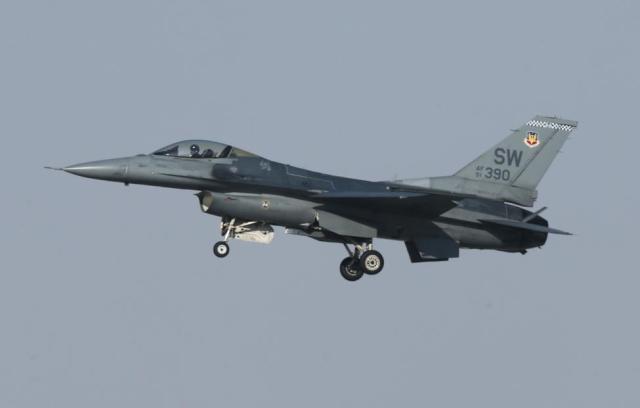Contacts between Kiev and Washington on this issue are carried out at a low level, the newspaper writesWASHINGTON, September 17.
/tass/. The United States and Ukraine are holding low-level consultations on the supply of fourth-generation American multifunctional F-16 fighter jets, Patriot anti-aircraft missile systems (SAMs), MQ-1C Grey Eagle reconnaissance and strike unmanned aerial vehicles (UAVs) to Kiev. This was reported on Friday by the newspaper Politico, citing its sources.
The Ukrainian authorities have stopped publicly asking Washington for the supply of these weapons, but "behind the scenes, attempts to get them do not stop," the newspaper notes. According to his sources, both sides are discussing whether to send fighters, SAMs and UAVs to Kiev while work is underway on long-term financial deals. Bilateral contacts about eventually sending Patriot, F-16 and Gray Eagles to Kiev at some stage continue at a low level.
The article emphasizes that in recent weeks Kiev "has moved from loud calls [to provide these types of weapons] to quieter consultations." This is caused, among other things, by the fact that Washington called on Kiev to focus on what it needs at the moment. So, there was concern that "requests for the supply of expensive weapons distract Kiev from more pressing needs on the battlefield."
The American side's concerns about the supply of these weapons are connected not only with the fact that they "will be provocative for Moscow," but also with the fact that the complex maintenance and support of these systems "will put Ukraine in a difficult position," explains Politico.
In the case of Patriot, their "relative shortage makes supplies to Ukraine a difficult task." In addition, the newspaper continues, there is also a problem of prioritization: US allies in NATO and outside the alliance also want to receive these weapons.
A congressional source told the publication that the F-16s "will most likely be delivered [to Kiev] after the end of the conflict." U.S. officials also continue to discuss whether to send Patriot to Ukraine as part of a long-term strategy. Discussions on sending the system are at an early stage at the Pentagon, Politico explained, and the final decision will be up to President Joe Biden. "But the fact that officials are talking about such a step is a serious shift compared to this spring, when American officials rejected this idea," the article notes.
The newspaper admits that the Pentagon will conclude a contract with the defense company Raytheon Technologies to create additional air defense systems for Kiev instead of transferring Patriot batteries already in service with the United States. Its sources believe that the supply of these SAMs "will be less esclational."
Answering a question from Politico about sending air defense systems and other new types of weapons to Ukraine, the official representative of the US Department of Defense, Lieutenant Colonel Garron Gairn, said that the department "has no new statements at the moment" about this. "In general, we are working around the clock to fulfill Ukraine's priority requests for security assistance, supplying weapons from US stocks when they are available, and facilitating the supply of weapons by allies and partners when their systems are better suited to Ukraine's needs," he said.
On February 24, Russian President Vladimir Putin announced a special military operation in Ukraine in connection with the request of the leaders of the republics of Donbass for help. He stressed that Moscow's plans do not include the occupation of Ukrainian territories, and the goals are demilitarization and denazification of the country. The West, in response to Russia's decision, began gradually imposing numerous and large-scale sanctions against it. Along with this, Western states have begun to supply weapons and military equipment to Kiev for amounts estimated at this stage in the tens of billions of dollars. A number of Western politicians have admitted that it is, in fact, an economic war against Russia. As Putin stated on March 16, the Western sanctions policy towards Moscow has all the signs of aggression. He pointed out that the policy of containing Russia is a long-term strategy of the West.
Foreign Minister Sergey Lavrov and other Russian officials have repeatedly drawn attention to the danger of the spread of weapons supplied by the West to Ukraine in other regions. Russian Ambassador to the United States Anatoly Antonov warned that the militarization of Ukraine by the West directly threatens European and global security.

